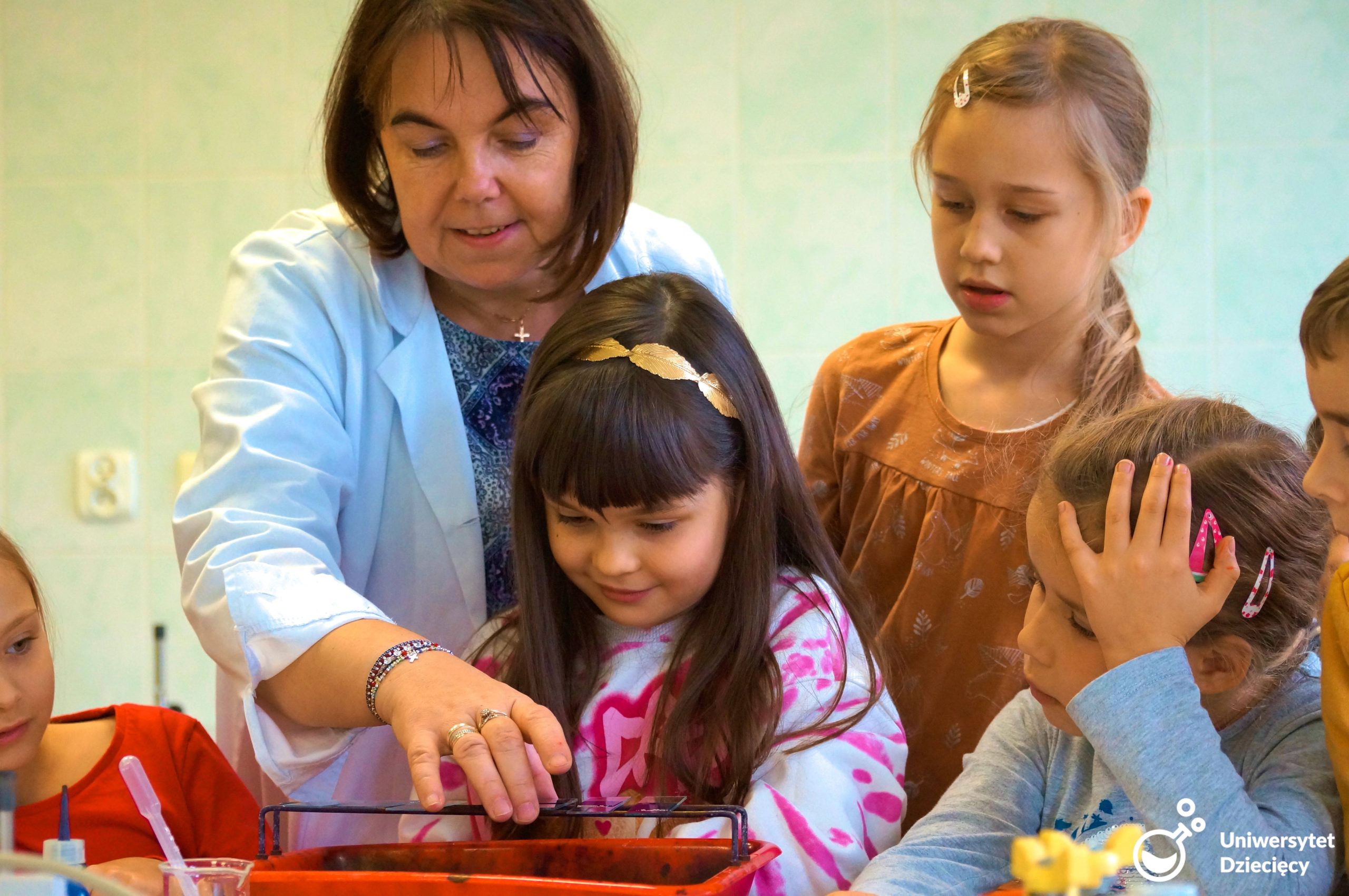Innate curiosity needs to be nurtured from an early age. It is then easier to develop a lifelong habit of pursuing knowledge. Nicolaus Copernicus University in Toruń (NCU) is aware of that, which is why it supports the Children’s University, the University of the Young and the University Secondary School in Toruń. NCU are also working on a programme that will sustain the appetite for education and self-development in adults as well.
You don’t need to sow the seeds of curiosity in children, they already have it in them, you just need to give them the opportunity to pursue answers to a myriad of questions. With this in mind, the University’s Amicus Universitatis Nicolai Copernici Foundation has been running a Children’s University since 2010. ‘Why did we start organising activities for children? Because we heard that physics was boring, maths was difficult and nothing explodes in chemistry. So we made it explode. And it worked!’. With this slogan, the organisers welcome visitors to their website, emphasising from the entrance that this is experiential learning. The Foundation cooperates with almost all the university’s faculties offering classes consisting of the brief lecture and a workshop (the one with the explosions). Children as young as five years old can attend, and the next age groups correspond to the first six grades of Polish primary school.
Teenagers can explore their passions and satisfy their thirst for knowledge at the University of Youth. This formation, opened in 2014, conducts classes in the formula of thematic profiles. Small groups tackle specific problems in selected disciplines under the guidance of an academic specialist. There are, for example, programming classes, biology and chemistry labs or classes preparing for end-of-school examinations.
Also, University Secondary School in Toruń operates under the NCU, and it is celebrating its 25th anniversary this year. The institution has been among the top secondary schools in Poland for decades. As it is an organ of the NCU, the school’s students have the opportunity to participate in academic classes and they have access to the University Library collection. A staff of academic teachers supports students in their development by, among other things, helping them prepare for competitions and olympiads.
NCU realises how important it is to educate and nurture inquisitiveness, also in adulthood, which is why it cooperates with the University of the Third Age in Toruń. This association has as its main objectives the intellectual activation and improvement of the quality of life of elderly people. In pursuit of these missions, it organises lectures, discussions, language courses, computer training and many more.
Different age groups can improve their competences at the University. Academic and language courses, open lectures and postgraduate studies are just some of the activities NCU provides. A lot of attention is currently focused on reorganising and finding new solutions for lifelong learners. NCU is just preparing to introduce micro-credentials firstly for its students. This is an exciting challenge, as work on the concept of micro-credentials in the area of the Higher Education in Poland is still ongoing. Fortunately, the Minister’s advisory team also involves an NCU employee as an advisor, Dr Anna Kola, who is overseeing the changes to the education programme at our university.
Furthermore, membership in the Young Universities for the Future of Europe (YUFE) alliance acts as an accelerator for similar initiatives. Together with the other universities, NCU is working on a lifelong learning offer. However, the Polish market is difficult and fiercely competitive, and in order to present options that are attractive to conscious recipients, they need to be refined to the last detail. Nevertheless, NCU firmly believes that this is possible and that the University will once again be perceived as a partner for life by our society.










